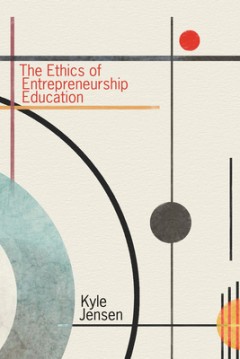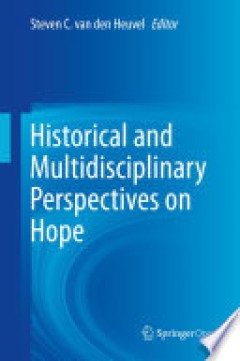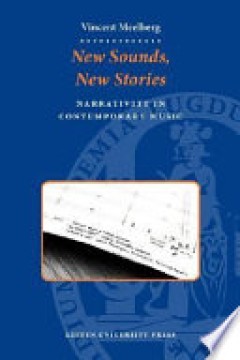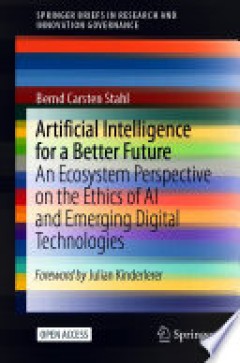Filter by
# Debug Box
/var/www/htdocs/pustaka-digital/lib/SearchEngine/SearchBiblioEngine.php:688 "Search Engine Debug 🔎 🪲"
Engine Type ⚙️: "SLiMS\SearchEngine\SearchBiblioEngine"
SQL ⚙️: array:2 [ "count" => "select count(sb.biblio_id) from search_biblio as sb where sb.opac_hide=0 and (sb.call_number LIKE :callnumber)" "query" => "select sb.biblio_id, sb.title, sb.author, sb.topic, sb.image, sb.isbn_issn, sb.publisher, sb.publish_place, sb.publish_year, sb.labels, sb.input_date, sb.edition, sb.collation, sb.series_title, sb.call_number from search_biblio as sb where sb.opac_hide=0 and (sb.call_number LIKE :callnumber) order by sb.last_update desc limit 10 offset 0" ]
Bind Value ⚒️: array:1 [ ":callnumber" => "1%" ]

Playframes: how do we know we are playing?
An exploration of how we know we're playing and what happens when we don't. Playframes builds on the work of Gregory Bateson and Erving Goffman to take a deep dive into Bateson's primary question: How do we know we're playing? In this book, Celia Pearce addresses this question by building a comprehensive theory of the specific mechanisms that metacommunicate the message “this is play.” T…
- Edition
- -
- ISBN/ISSN
- 9780262381239
- Collation
- xiii, 324 p.,
- Series Title
- -
- Call Number
- 155.418 CEL p

The line: AI and the future of personhood
Chatbots like ChatGPT have challenged human exceptionalism: we are no longer the only beings capable of generating language and ideas fluently. But is ChatGPT conscious? Or is it merely engaging in sophisticated mimicry? And what happens in the future if the claims to consciousness are more credible? In The Line, James Boyle explores what these changes might do to our concept of personhood, to …
- Edition
- -
- ISBN/ISSN
- 9780262379670
- Collation
- 326 p., ill.
- Series Title
- -
- Call Number
- 126 BOY t

The ethics of entrepreneurship education
Entrepreneurship is now everywhere on college campuses: from classes and contests to accelerators and incubators spread across diverse departments and programs. These activities cultivate tomorrow's Facebooks and Googles but can also put profit in conflict with pedagogy. Should faculty keep information about student start-ups confidential? Should universities, or educators personally, invest in…
- Edition
- -
- ISBN/ISSN
- 9780262380478
- Collation
- xi, 209 p. : ill.
- Series Title
- -
- Call Number
- 174.4 JEN t

Human sustainability and cognitive overload at work: the psychological cost o…
This innovative book considers the cost of cognitive overload and psychological distress on human sustainability, and suggests ways to prevent employees from becoming a psychologically depleted workforce. Employee attentional processing capacity is maxed out, and psychological distress is at an all-time high. Alexander D. Stajkovic and Kayla S. Stajkovic explain how human cognitive ‘broadban…
- Edition
- -
- ISBN/ISSN
- 9781003399087
- Collation
- xi, 107 pages; illustration
- Series Title
- -
- Call Number
- 158.7 STA h

Science in the forest, science in the past
This collection brings together leading anthropologists, historians, philosophers, and artificial-intelligence researchers to discuss the sciences and mathematics used in various Eastern, Western, and Indigenous societies, both ancient and contemporary. The authors analyze prevailing assumptions about these societies and propose more faithful, sensitive analyses of their ontological views about…
- Edition
- -
- ISBN/ISSN
- 9781912808427
- Collation
- xii + 278 p
- Series Title
- -
- Call Number
- 111 GEO s

Doing the right thing : a value based economy
"This book is for all those who are seeking a human perspective on economic and organizational processes. It lays the foundations for a value based approach to the economy. The key questions are: “What is important to you or your organization?” “What is this action or that organization good for?” The book is directed at the prevalence of instrumentalist thinking in the current economy a…
- Edition
- -
- ISBN/ISSN
- 9781909188938
- Collation
- 266p
- Series Title
- -
- Call Number
- 174.4 KLA

Historical and multidisciplinary perspectives on hope
This open access volume makes an important contribution to the ongoing research on hope theory by combining insights from both its long history and its increasing multi-disciplinarity. In the first part, it recognizes the importance of the centuries-old reflection on hope by offering historical perspectives and tracing it back to ancient Greek philosophy. At the same time, it provides novel per…
- Edition
- 1
- ISBN/ISSN
- 9783030464899
- Collation
- XVI, 263p.; ill.
- Series Title
- -
- Call Number
- 128 HEU h

New sounds, new stories : narrativity in contemporary music
When listeners talk about their listening experiences, they often refer to music as if it were a narrative. But can music actually tell a story? Can music be narrative? Traditionally, narrativity is associated with verbal and visual texts, and the mere possibility of musical narrativity is highly debated. In this study, Vincent Meelberg demonstrates that music can indeed be narrative, and that …
- Edition
- -
- ISBN/ISSN
- 9789087280024
- Collation
- 268 hlm
- Series Title
- -
- Call Number
- 146 VIN n

Animals in our midst : the challenges of co-existing with animals in the anth…
This Open Access book brings together authoritative voices in animal and environmental ethics, who address the many different facets of changing human-animal relationships in the Anthropocene. As we are living in complex times, the issue of how to establish meaningful relationships with other animals under Anthropocene conditions needs to be approached from a multitude of angles. This book offe…
- Edition
- 1
- ISBN/ISSN
- 9783030635237
- Collation
- xv, 579p.; ill.
- Series Title
- The international library of environmental, agricultural and food ethics
- Call Number
- 179.3 ANI b

Artificial Intelligence for a Better Future : An Ecosystem Perspective on the…
This open access book proposes a novel approach to Artificial Intelligence (AI) ethics. AI offers many advantages: better and faster medical diagnoses, improved business processes and efficiency, and the automation of boring work. But undesirable and ethically problematic consequences are possible too: biases and discrimination, breaches of privacy and security, and societal distortions such as…
- Edition
- -
- ISBN/ISSN
- 9783030699789
- Collation
- 124 p
- Series Title
- SpringerBriefs in Research and Innovation Governance,
- Call Number
- 174.90063 STA
 Computer Science, Information & General Works
Computer Science, Information & General Works  Philosophy & Psychology
Philosophy & Psychology  Religion
Religion  Social Sciences
Social Sciences  Language
Language  Pure Science
Pure Science  Applied Sciences
Applied Sciences  Art & Recreation
Art & Recreation  Literature
Literature  History & Geography
History & Geography